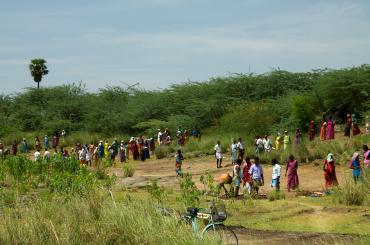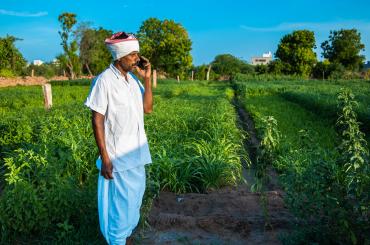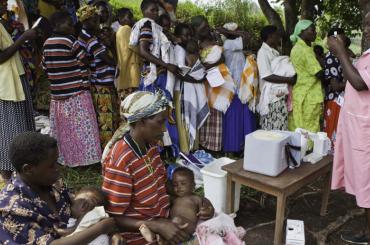

Paul Niehaus is Associate Professor of Economics at the University of California, San Diego, where he works with governments in emerging markets to improve the implementation of social programmes. He is a Faculty Research Fellow at the National Bureau of Economic Research (NBER), a Junior Affiliate at the Bureau for Research and Economic Analysis of Development (BREAD), an Affiliate of the Jameel Poverty Action Lab (J-PAL), and an Affiliate at the Center for Effective Global Action (CEGA). He is also co-founder and president of Give Directly, currently the top-rated nonprofit by Give Well and ranked among the 25 most audacious companies (Inc) and 10 most innovative companies in finance (Fast Company). He holds a Ph.D. in economics from Harvard University. In 2013 Foreign Policy named him one of its 100 leading “Global Thinkers.”
Recent work by Paul Niehaus
-

Reforming India’s public works scheme raised incomes
Improving the payment infrastructure for India’s National Rural Employment Guarantee Scheme raised incomes — mostly through increases in non-programme earnings
Published 30.10.23
-

Improving last-mile service delivery using phone-based monitoring: Evidence from India
Monitoring a programme by calling recipients is a cost-effective way to improve implementation quality
Published 01.08.22
-

Balancing corruption and exclusion: Incorporating India’s Aadhaar into public food distribution
Fighting corruption with India's new national ID system has cost some low-income households their benefits in the process
Published 17.04.20
-

RCTs: Why scale matters
How does scaling up randomised controlled trials make them more effective?
Published 13.03.19
-

Why studies should be conducted on a larger scale
Karthik Muralidharan and Paul Niehaus argue that when we test things at a small scale, they might not be predictive of how they perform at a larger scale
Published 10.10.18
-

Smartcards for smarter payments
Biometric technology and smart ID cards reduced leakage due to corruption and raised participation rates in the welfare system in Andhra Pradesh, India
Published 07.07.17
-

The future of social assistance in Africa and beyond
A discussion hosted by the Centre for the Study of African Economies, two visionary thinkers in a discussion on the future of social assistance through cash transfers.
Published 21.06.17